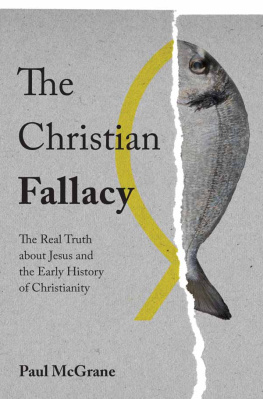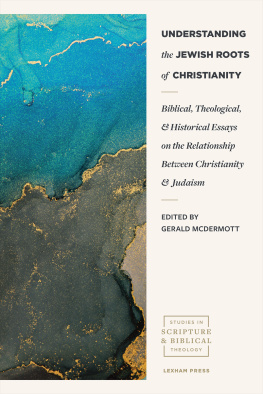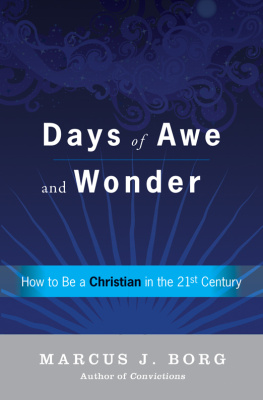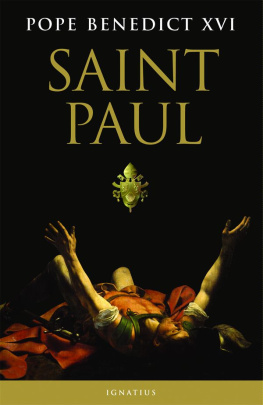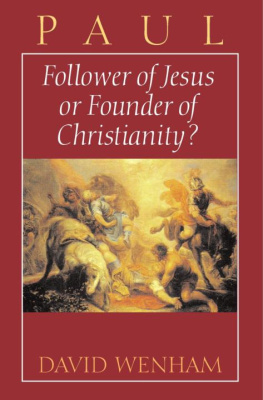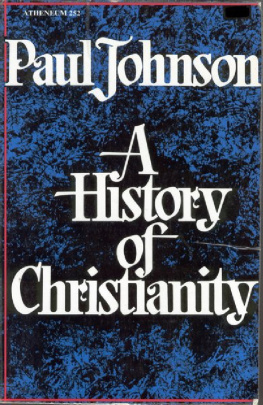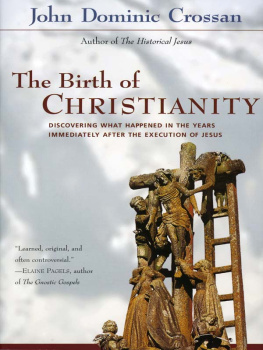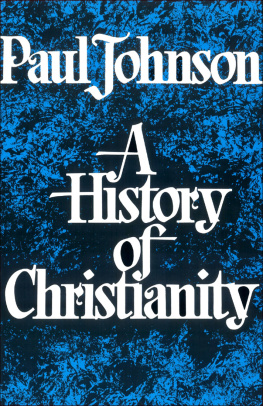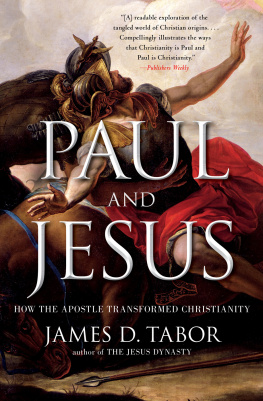About the Author

Paul McGrane has a first-class degree in English Literature from Ulster University and a doctorate from Oxford University. He is now sixty-six and retired from a successful business career. He collects first editions and researches in literary and historical subjects that interest him. He has three adult children, two grandchildren and lives in Norfolk and Spain with his wife Jean.
Acknowledgments
This book sets out a solution to the puzzle of the historical Jesus that is, I believe, in its key elements, new and original. However, it builds upon the work of many others, six of whom must be given special mention:
First is Robert M. Price , an American theologian and writer who, in a succession of books and through his website, has argued extensively and in scholarly detail that Jesus was never a historical figure. His The Christ-Myth Theory and Its Problems goes through the Gospels, line by line, showing how everything we think we know about the life of Jesus was lifted from the Old Testament and other sources. For anyone seeking detailed validation of the mythicist stance, it is an indispensible source book. Prices acknowledgment that James [the brother of the Lord] remains the strongest evidence that Jesus was not a mythic character is absolutely right. It is an important part of my own argument that there were in fact, two Jameses; that neither was Jesus brother, but they were both important figures in the Jesus Movement and in the history of first-century Jewish affairs.
Next is Robert Eisenman , an American biblical scholar whose seminal work, James, the Brother of Jesus , has been influential among sceptics and conspiracy theorists, and is indispensible reading for anyone seeking to untangle the web of disinformation that characterises the four Gospels and the Book of Acts of the Apostles. Like Price, he identifies the historicity of James as crucially related to the problem of Jesus own historicity: after 963 pages of analysis and polemic he concludes: Who and whatever James was, so was Jesus. I reach different conclusions, but am nevertheless deeply indebted to Eisenman for the sheer depth and range of his scholarship. The sequel to James is The New Testament Code , which expands on Eisenmans controversial thesis that the Early Church is indistinguishable from the Essenes, who wrote the Dead Sea Scrolls. Again, although the scholarship on display in this book is impressive and thought-provoking, in the final analysis, I think that identification is wrong.
An alternative view has been expounded in a number of books by the British Jewish scholar, Hyam Maccoby . Particularly in Jesus the Pharisee and The MythMaker: Paul and the Invention of Christianity he argues persuasively that the New Testament portrayal of the Pharisees is in fact the precise opposite of the historical truth, and that Christianity arose ultimately not from the small Essene sect, but from the most popular Jewish religious movement of the time, the Pharisees. I take the same view, although I do not think it takes us very far. What is in question it seems to me is not the group that Christianity grew out of, but identifying what was unique and new about the Jesus Movement .
Daniel T. Unterbrink is an American writer who, through a series of self-published books culminating in The Three Messiahs , has developed with considerable tenacity the theory that Jesus was the honorific title for Judas the Galilean the early first-century revolutionary and founder of what Josephus called the Fourth Philosophy in first-century Judaism. Both he and Eisenman have highlighted the chronological difficulties around Josephus accounts of Pontius Pilate and John the Baptist, which are also foundation stones of my own analysis. I argue that Judas is indeed a key player in the Jesus story but as is the case with Eisenmans James, the relationship between the two is not as straightforward as Unterbrink imagines. The story of Judas has indeed contributed to the stories about Jesus that are told in the four Gospels but Judas and Jesus were different people as their names would imply and Unterbrink mistakes parallels for identity.
Alvar Ellegrd was a Swedish academic with (like myself) a background in literary and linguistic studies. A convinced mythicist like Price, his approach is to examine the historical context of the surviving early Christian texts within and without the biblical canon. In his Jesus, One Hundred Years Before Christ , he argues that Jesus was synonymous with the Essene Teacher of Righteousness who, he argues, in line with Dead Sea Scrolls orthodoxy, lived in the first century BC . In my view he gets everything right except for his crucial Essene conclusion, and therefore his identification of Jesus with the Essene Teacher also fails on my analysis. Jesus was an historical figure that lived some time before the Christian Era, but he was not the tantalisingly evasive Teacher of the Essenes, and early Christianity, while it borrowed much from the Essenes, ultimately has its roots elsewhere.
J. Massyngberde Ford was a Roman Catholic and Professor of New Testament Studies at the University of Notre Dame in Indiana. Her translation of the Book of Revelation for the Yale University Anchor Bible contains an Introduction and Commentary that argue for the roots of Revelation in the movement founded by John the Baptist. She identifies 11 more particularly as representing the original teachings of the Baptist himself. Most other scholars, while many would agree the separate and early authorship of those chapters, do not go that far. I argue in this book that when Professor Fords ideas are viewed in the context of my new paradigm, the arguments for the Baptists authorship become almost irresistible. And as a result, we are given a unique insight into the way in which Jewish Apocalypse transformed in the hands of early Christians to a most un-Jewish set of beliefs about someone called Jesus Christ.
My own book could not have been written without the considerable insights of these six writers. Although knowledge of them and their arguments is not necessary to understand the thesis put forward in the preceding pages, I warmly recommend anyone interested in these matters to read their writings in general, and the specific books mentioned above.
Thanks are also due to my agent, Jonathan Hayden; to my publisher, Clare Christian and her team, Heather Boisseau and Anna Burtt; to Liron Gilenberg for the cover design; to Joseph Everett for the maps; to Nicky Gyopardi for her editing and Annelise Evans for her proofreading; to Lisa Footit for the index; to my daughter, Holly McGrane, for helping with the mysteries of social media; and finally, to my wife, Jean, for her belief, unstinting support, and love.
Select Bibliography
Primary Sources
The Bible, The King James Version, www.kingjamesbibleonline.org.
Charles R. H., (Ed.), The Apocrypha and Pseudepigrapha of the Old Testament, 2 Vols., (Oxford: University Press, 1913).
Church, A. J., Brodribb, W. I. (Trans.) The Annals of Tacitus (Pennsylvania:Franklin Library, 1982).
Dio Cassius, Roman History : Vol., Cary, Ernest (Trans.) in Loeb Classical Library, Vol. (Cambridge MA: Harvard University Press, 1997).
Eisenman, Robert & Wise, Michael, The Dead Sea Scrolls Uncovered (Shaftesbury, Dorset: Element, 1992).
Elliott, J. K., The Apocryphal New Testament (Oxford: Clarendon Press, 1993).
Rackham, H., Jones, W., Eichholz. D. (Trans.) Plinys Natural History (Massachusetts: Harvard University Press, 1949-54).
Robinson, James M. (Ed.), The Nag Hammadi Library in English , 3rd Ed. (HarperSanFrancisco, 1988).

